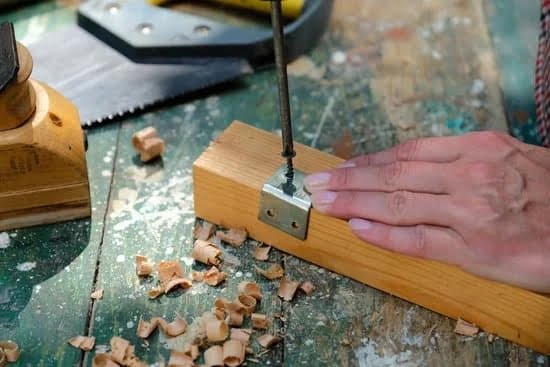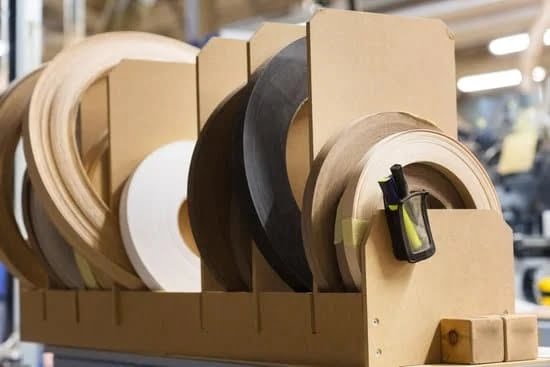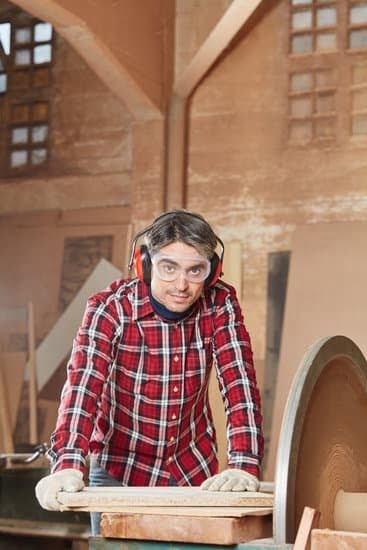Are you looking to delve into the world of DIY woodworking and wondering what tools are essential for success? Look no further, as we guide you through the best tools for DIY woodworking that will help you achieve stunning results in your projects. Whether you’re a beginner or a seasoned woodworker, having the right tools is crucial in turning your vision into reality.
When it comes to DIY woodworking, having the best tools at your disposal can make all the difference in the quality and efficiency of your work. From hand tools like hammers and chisels to power tools such as saws, drills, and sanders, each tool plays a unique role in helping you craft beautiful wood pieces. Ensuring precision in your projects with measuring and marking tools is also essential, while prioritizing safety with proper safety gear is non-negotiable.
In this comprehensive guide, we will explore the various types of essential hand tools, power tools, measuring and marking tools, safety gear, storage and organization solutions, specialty tools for advanced projects, as well as budget-friendly options that won’t break the bank. By equipping yourself with the best tools for DIY woodworking, you can set yourself up for success and unlock your full creative potential in every project.
Essential Hand Tools
When it comes to DIY woodworking, having the right hand tools is essential for achieving professional results. From hammers to chisels, these tools play a critical role in shaping and finishing your woodworking projects. One of the key hand tools that every DIY woodworker should have in their arsenal is a hammer. Whether you’re driving nails or gently tapping pieces into place, a good quality hammer is indispensable.
Chisels are another must-have hand tool for DIY woodworking. These versatile tools can be used for carving, shaping, and detailing wood to create intricate designs or smooth surfaces. It’s important to invest in high-quality chisels that are sharp and durable to ensure precision and accuracy in your woodworking projects. Additionally, having a set of different sizes and types of chisels will give you more flexibility when working on various woodworking tasks.
To ensure that you have the best tools for DIY woodworking, consider investing in a quality set of hand tools that includes not only hammers and chisels but also other essentials such as screwdrivers, hand saws, clamps, and more. Having a well-rounded collection of hand tools will not only make your woodworking projects easier and more enjoyable but will also help you achieve professional-looking results.
Don’t overlook the importance of these essential hand tools when setting up your woodworking workshop – they are the building blocks of successful DIY woodworking endeavors.
| Hand Tool | Description |
|---|---|
| Hammer | A versatile tool used for driving nails and adjusting pieces during woodworking projects. |
| Chisels | Essential for shaping, carving, and detailing wood to achieve precise designs and finishes. |
| Screwdrivers | Helpful for assembling furniture pieces or securing hardware in wooden structures. |
Power Tools
When it comes to DIY woodworking projects, having the right power tools can make a world of difference in both efficiency and precision. Whether you are cutting, drilling, or sanding, using the best tools for DIY woodworking can elevate your creations to new heights. Here is a comprehensive guide to some essential power tools every woodworker should consider adding to their arsenal:
- Table Saw: A table saw is a versatile tool that allows you to make straight cuts with ease. From ripping large boards to creating intricate joinery, a table saw is a must-have for any serious woodworker.
- Drill Press: For accurate and consistent drilling, a drill press is essential. It provides more control and precision compared to a hand-held drill, making it ideal for tasks such as creating dowel holes or installing hardware.
- Random Orbital Sander: When it comes to finishing your projects, a random orbital sander delivers smooth and swirl-free results. It’s great for smoothing surfaces, removing old finishes, or preparing wood for staining or painting.
Investing in high-quality power tools can significantly improve the quality of your DIY woodworking projects. While it may require an initial investment, the efficiency and precision that these tools offer will pay off in the long run. By equipping yourself with the best tools for DIY woodworking, you not only enhance your capabilities but also ensure that your projects turn out exactly as envisioned.
Measuring and Marking Tools
When it comes to marking tools, a pencil is a woodworker’s best friend. It allows for easy marking of measurements and cutting lines on the wood. However, for more permanent markings, a utility knife or marking knife can be used to scribe lines that won’t smudge or fade easily. Additionally, a marking gauge is useful for creating consistent lines parallel to an edge of the wood, ensuring accuracy in your cuts.
In the world of DIY woodworking, precision is key to achieving professional results. Investing in the best tools for measuring and marking not only ensures accuracy but also saves time and materials by minimizing mistakes. Whether you are a beginner or an experienced woodworker, having a comprehensive set of measuring and marking tools is crucial for successful projects.
| Measuring and Marking Tool | Description |
|---|---|
| Tape Measure | Used for accurate measurements of length, width, and height. |
| Combination Square | Helps in marking 90-degree angles for precise cuts. |
| Caliper | Used for precise measurement of thickness or diameters. |
Safety Gear
The Importance of Safety Gear
When it comes to DIY woodworking, safety should always be a top priority. Protective gear is essential to prevent injuries and accidents while working with power tools or sharp hand tools. The best tools for DIY woodworking include items such as safety glasses, ear protection, dust masks, and gloves. These items can help protect your eyes, ears, respiratory system, and hands from potential hazards in the workshop.
Must-Have Safety Gear
One of the best tools for DIY woodworking that you should never work without is a pair of safety glasses. These will protect your eyes from flying debris, sawdust, and other particles that can cause irritation or injury. Ear protection is also crucial when using loud power tools such as drills or routers.
Wearing hearing protection can prevent long-term damage to your hearing caused by prolonged exposure to high noise levels. Additionally, a dust mask is essential for filtering out harmful particles in the air and preventing respiratory issues related to wood dust inhalation.
Safety First: Using Proper Protection
In order to ensure maximum safety while woodworking, it’s important to use the best tools for DIY woodworking protective gear correctly. Make sure your safety glasses fit securely on your face and provide full coverage around your eyes. Ear protection should be worn whenever you are operating noisy machinery or tools.
Dust masks should form a tight seal around your mouth and nose to effectively filter out particles. By using these essential safety gear items properly, you can enjoy woodworking with peace of mind knowing that you are taking the necessary precautions to protect yourself from potential harm.
Tool Storage and Organization
When it comes to DIY woodworking, having the best tools is only part of the equation for successful projects. Properly storing and organizing your tools is essential in order to maintain a clean and efficient workspace. Investing in the right storage solutions not only helps you keep track of your tools easily but also extends their lifespan by preventing damage or misplacement.
One of the key aspects of tool storage and organization is having a designated place for each tool. This not only makes it easier to find what you need when working on a project but also helps in keeping your workspace clutter-free. Consider installing shelves, pegboards, or cabinets in your workshop to create specific spots for different types of tools such as hand tools, power tools, measuring instruments, and safety gear.
In addition to having proper storage solutions, it is important to establish good habits when it comes to organizing your tools. Make it a practice to put each tool back in its designated place after use, rather than leaving them scattered around the workspace.
This not only minimizes the risk of accidents but also saves time that would otherwise be spent looking for misplaced tools. By maintaining an organized workspace, you can increase efficiency and productivity in your DIY woodworking projects while also prolonging the life of your tools.
Specialty Tools
Here are some of the best specialty tools for DIY woodworking that can help you elevate your projects:
- Router: A versatile tool that can be used for shaping edges, cutting grooves, and creating intricate designs, routers are essential for any woodworker looking to add detail and finesse to their projects.
- Dovetail Jig: If you want to create strong and beautiful dovetail joints for drawers or boxes, a dovetail jig will make the process much easier and more precise than doing it by hand.
- Biscuit Joiner: Perfect for creating strong joints quickly and accurately, a biscuit joiner is ideal for woodworking projects that require seamless connections between pieces of wood.
With these specialty tools in your arsenal, you’ll be equipped to tackle advanced woodworking projects with confidence and precision. Investing in quality specialty tools may seem like an additional expense, but they can truly make a significant difference in the quality of your work. By exploring these unique options, you’ll expand your capabilities as a DIY woodworker and open up new possibilities for creative expression in your craft.
Budget-Friendly Options
When it comes to embarking on DIY woodworking projects, having the right tools is essential for success. While quality tools can often come with a hefty price tag, there are budget-friendly options available that offer great value without compromising on performance. Utilizing the best tools for DIY woodworking doesn’t have to break the bank, and with careful consideration, you can build up your tool collection without draining your wallet.
Second-Hand Gems
One great way to save money on woodworking tools is by considering second-hand options. Many online marketplaces and local hardware stores offer used tools in good condition at a fraction of the cost of brand new ones.
Keep an eye out for reputable sellers who provide detailed descriptions and images of the tools to ensure you’re getting a quality product. From hand saws to power drills, you can find a wide range of gently used tools that will serve you well in your woodworking projects.
Combo Kits
Another budget-friendly option for DIY woodworkers is investing in combo kits that include multiple essential tools in one package. These kits often combine various power tools like drills, saws, and sanders at a discounted price compared to purchasing each tool separately.
Not only do combo kits save you money upfront, but they also ensure that you have a cohesive set of tools that work well together. Whether you’re just starting or looking to upgrade your arsenal, investing in combo kits can provide excellent value for your woodworking projects.
DIY Solutions
For those who enjoy getting hands-on with their projects, creating DIY solutions for certain woodworking tasks can be both cost-effective and rewarding. From making your own clamps using scrap wood and screws to repurposing old containers for tool storage, there are plenty of ways to save money while enhancing your workshop setup.
By thinking creatively and utilizing resources you already have at hand, you can build a collection of functional tools without spending a fortune. Remember, sometimes the best tool for DIY woodworking is one that you make yourself.
Conclusion
In conclusion, having the right tools is essential for success in DIY woodworking projects. Whether you are a beginner looking to start your woodworking journey or an experienced woodworker seeking to upgrade your tools, investing in the best tools for DIY woodworking is crucial. From essential hand tools like hammers and chisels to power tools such as saws, drills, and sanders, each tool plays a significant role in helping you achieve precision and efficiency in your projects.
It is important to remember that safety should always be a top priority when working with woodworking tools. Wearing proper safety gear such as goggles, dust masks, and ear protection can prevent accidents and protect yourself from potential injuries. Additionally, maintaining a well-organized workspace not only improves efficiency but also ensures that your tools are easily accessible when needed.
Ultimately, by equipping yourself with the best tools for DIY woodworking, you are setting yourself up for success in creating beautiful and functional pieces of furniture or decor. Whether you choose budget-friendly options or invest in high-quality tools that will last a lifetime, having the right tools at your disposal empowers you to unleash your creativity and bring your woodworking projects to life.
So, go ahead and explore the world of DIY woodworking with confidence, knowing that you have the best tools by your side.
Frequently Asked Questions
What Is the Most Useful Tool for Woodworking?
The most useful tool for woodworking is arguably the table saw. It is versatile, precise, and essential for making straight cuts in various types of wood. With the right accessories and setup, a table saw can handle a wide range of tasks efficiently.
What Tools Do You Need to Get Started in Woodworking?
To get started in woodworking, you will need basic tools such as a hammer, tape measure, chisels, screwdrivers, and clamps. Additionally, a saw (either a handsaw or a circular saw), a drill with drill bits, and sandpaper are essential tools for any beginner woodworker. These tools will allow you to complete many simple projects effectively.
What Tools Should a Beginner Carpenter Have?
For a beginner carpenter, it is important to have fundamental tools such as a claw hammer for driving nails, measuring tape for accurate measurements, a combination square for marking straight lines and angles, and safety gear like goggles and gloves to protect yourself while working with wood.
A good quality hand saw for cutting wood along with screwdrivers and a cordless drill will also be valuable additions to your toolkit as you start honing your skills in carpentry.

Hi everyone! I’m a woodworker and blogger, and this is my woodworking blog. In my blog, I share tips and tricks for woodworkers of all skill levels, as well as project ideas that you can try yourself.





